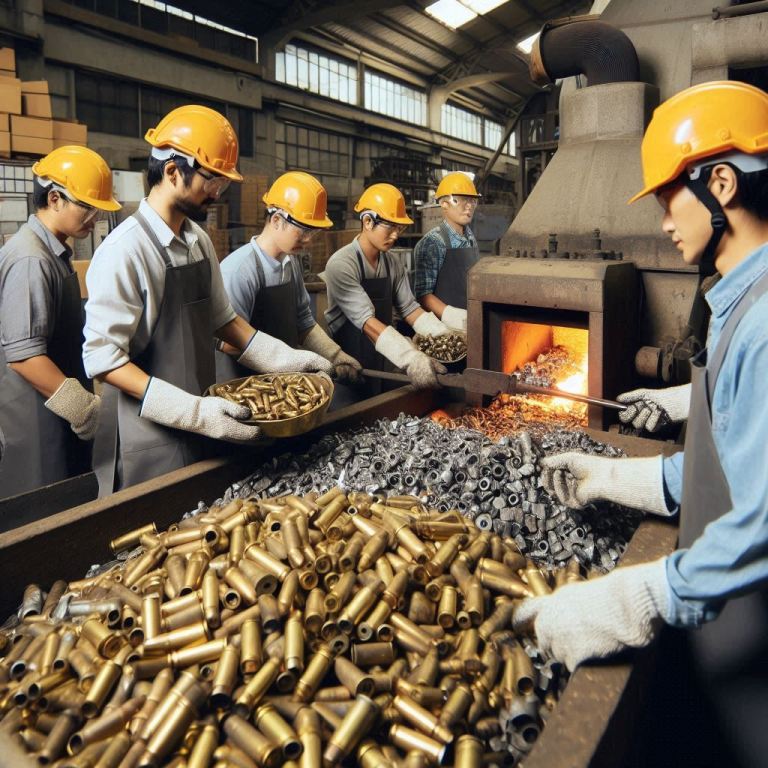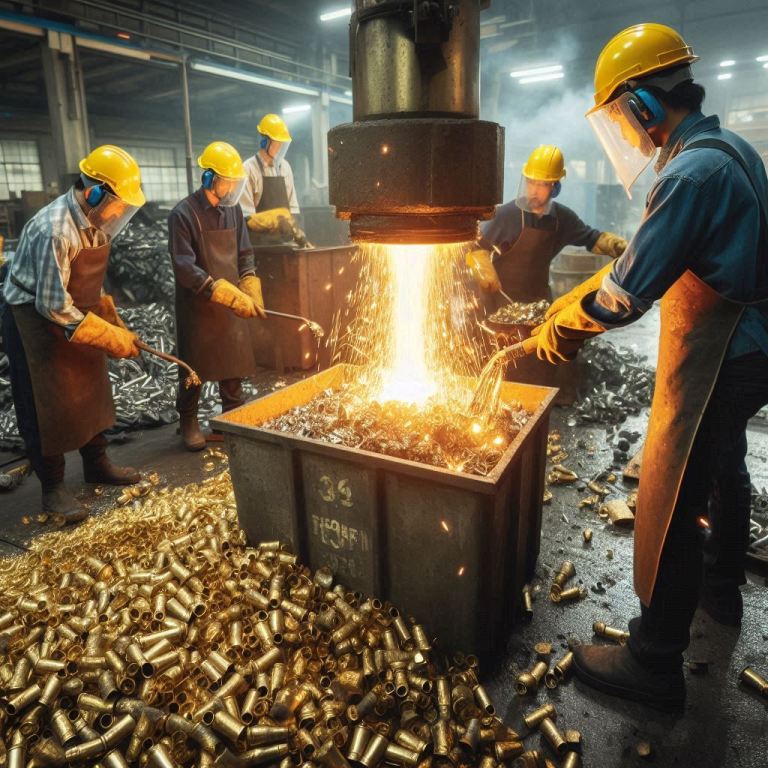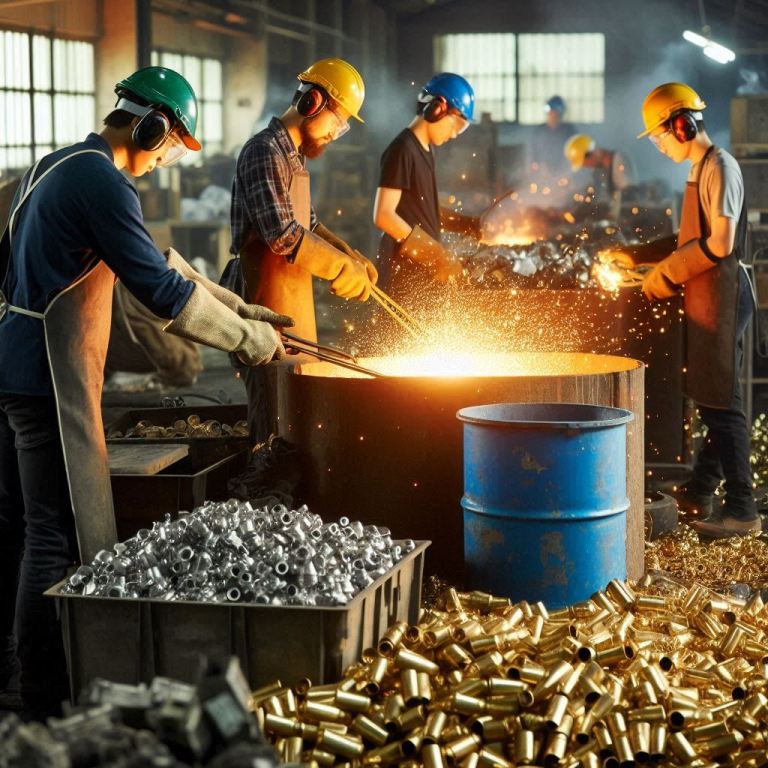Recycling of scrap brass shells is an essential part of both environmental sustainability and the metal recycling industry. Companies that specialize in this area not only contribute to reducing waste but also help recover valuable materials that can be reused in various applications. This blog post explores several notable companies engaged in the recycling of scrap brass shells, highlighting their processes, benefits, and contributions to the recycling ecosystem.
Brass Shell Recycling Companies

1. Schnitzer Steel Industries, Inc.
Schnitzer Steel is a prominent player in the recycling sector, known for its comprehensive metal recycling operations. The company accepts a wide range of scrap metals, including brass shells. They employ advanced processing techniques to ensure that materials are recycled efficiently and sustainably. Schnitzer’s commitment to environmental stewardship is evident in their efforts to minimize waste and reduce the carbon footprint associated with metal recycling.
2. Liberty Iron & Metal
Liberty Iron & Metal specializes in the recycling of various metals, including non-ferrous materials like brass. They have established a strong network of collection points and processing facilities, making it easier for individuals and businesses to recycle their scrap brass shells. Liberty emphasizes the importance of recycling in conserving natural resources and reducing landfill waste, making them a key contributor to the circular economy.
3. EMR (European Metal Recycling)
EMR is a global leader in metal recycling with a significant presence in the United States. They provide services for collecting and recycling scrap brass shells, utilizing state-of-the-art technology to ensure high recovery rates. EMR’s operations focus on sustainability, aiming to transform waste into valuable resources while adhering to strict environmental regulations.
4. Cohen Recycling
Cohen Recycling is another major player in the metal recycling industry, with a long history of operations. They accept a variety of scrap metals, including brass shells, and offer convenient drop-off locations for customers. Cohen is dedicated to educating the public about the benefits of recycling and actively promotes initiatives that enhance community involvement in sustainable practices.
5. Alter Trading Corporation
Alter Trading is a family-owned business that has been in operation for over a century. They specialize in the recycling of ferrous and non-ferrous metals, including brass. Alter Trading emphasizes the importance of responsible recycling practices and works closely with local communities to encourage participation in recycling programs. Their commitment to sustainability is reflected in their efforts to reduce waste and promote resource recovery.
Recycling Process for Brass Shell Casings

The recycling process for brass shell casings involves several key steps to ensure the metal is properly recovered and prepared for reuse:
1. Sorting and Preparation
- Brass shells are sorted by material type (brass, steel, aluminum) to separate the valuable brass from other metals.
- Live rounds and any explosives are removed for safety reasons.
- Shells are cleaned to remove dirt, debris, and gunshot residue.
2. Detonation and Cleaning
- Sorted and cleaned shells are placed in a high-temperature kiln to “pop” any remaining live rounds and force them to explode.
- After cooling, the shells undergo further cleaning to remove as much lead and dirt as possible.
3. Deformation and Aggregation
- A hammer mill or shredder deforms the cleaned shells into smaller pieces.
- An aggregator machine then loads these deformed shell pieces for transportation to a brass mill.
4. Melting and Casting
- At the brass mill, the shell pieces are melted down and combined with other metallic elements to achieve the desired brass alloy composition.
- The molten brass is then cast into rods or ingots for further processing.
5. Repurposing
- The recycled brass ingots can now be used to manufacture a wide variety of products, including:
- Plumbing materials
- Musical instruments
- Decorative fixtures
- Machinery parts
Recycling brass shell casings is an efficient and environmentally-friendly process that conserves natural resources, reduces waste, and provides a valuable source of recycled metal for various applications.
Benefits of Recycling Brass Shells

Recycling brass shells not only conserves natural resources but also provides several economic and environmental benefits:
- Resource Conservation: Brass is a valuable metal, and recycling helps reduce the need for new raw materials, thereby conserving natural resources.
- Energy Savings: The recycling process typically requires less energy compared to producing new brass from ore, resulting in lower greenhouse gas emissions.
- Economic Opportunities: The recycling industry creates jobs and supports local economies, providing employment in collection, processing, and distribution.
- Waste Reduction: By recycling brass shells, companies help divert waste from landfills, contributing to a cleaner environment.
Conclusion
The recycling of scrap brass shells is a vital component of the metal recycling companies, with several Players leading the charge in sustainable practices. Organizations like Schnitzer Steel, Liberty Iron & Metal, EMR, Cohen Recycling, and Alter Trading Corporation are not only helping to recover valuable materials but also promoting environmental sustainability. By supporting these companies, individuals and businesses can play a crucial role in fostering a more sustainable future through responsible recycling practices.






